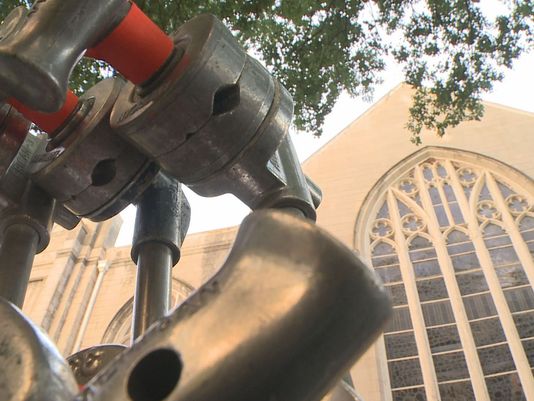This week, President Obama talked about the need for television and film to show Muslims in other ways besides being the perpetrators or victims of terror. Allyssa Rosenburg says that the problem is deeper than that: “if Hollywood has trouble telling stories about Muslims in other contexts, that’s in part because the entertainment industry isn’t very good at talking about the daily practice of religion, no matter what a character’s faith is.”
Hollywood tried it once or twice, as in the short-lived series The Book of Daniel (which gave rise to this blog), but there is more to be done.
WaPo:
Hollywood tends to use religion in two ways: the first is to actually drive the plot of a show or movie.
“Spotlight,” Tom McCarthy’s Oscar-nominated movie about the Boston Globe’s reporting on the Catholic church’s coverup of widespread sexual abuse by a startling number of priests, is terrific not least because it examines the power of the church in the region in a way that goes beyond ethnic color. The film paints a portrait of the lawyers, school administrators, police officers and ordinary civilians who deferred to Cardinal Bernard Law (Len Cariou) or carried out his wishes, and tallies the cost that dissenters paid for speaking out against the church, even to expose serious crimes.
“The Americans,” FX’s drama about deep-cover KGB spies raising a family in the Washington suburbs, has carved out space to examine Paige Jennings’s (Holly Taylor) conversion to Christianity because it’s a major driver of the action on the series. Paige’s attraction to religion as a framework that teaches her how to be good threatens her parents, Elizabeth (Keri Russell) and Philip (Matthew Rhys), who hope that Paige can eventually be a second-generation spy for the atheist regime to which they’ve pledged their lives. And after Elizabeth and Philip tell Paige who she really is, her faith and conscience ultimately lead her to confess to her pastor (Kelly AuCoin) in the final episode of the third season.
Religion often serves as a sort of shorthand to describe a culture or ethnicity rather than explore the nuances of faith.
There is no quicker shorthand for the contradictions of an Irish or Italian gangster than to establish his Catholic faith (followed quickly by the depth of his affection for his mother). Only 2.2 percent of Americans are Jewish, but Yiddishisms, as well as tropes like neuroses, over-involved mothers and smoked fish, are so deeply established that it’s easy to sketch in the same sort of detail with just a few references. And black church choirs are both a signaling mechanism and a lovely visual and sonic device to drop into a movie or episode.
These signalling mechanisms work in part because they’re already familiar to viewers. And while they may be stereotypes — it will take years for Jewish characters in pop culture to escape the shadow of Woody Allen — these tropes at least guarantee some generally genial representation.
Such mass-culture shorthand just doesn’t exist for Muslims and for Islam. Polls consistently suggest that Americans don’t know very much about Islam, and the number of survey respondents who say that Islam is incompatible with American values has grown in recent years. Action movies might throw in an early-morning call to prayer, but in this environment of mistrust and suspicion, that sound might as easily signal trouble as piousness and community feeling.
To move past suspicion and division, films and television can show the faith of Muslims (and others) at work in daily life rather than in the cheap stereotypes they often fall back upon.

